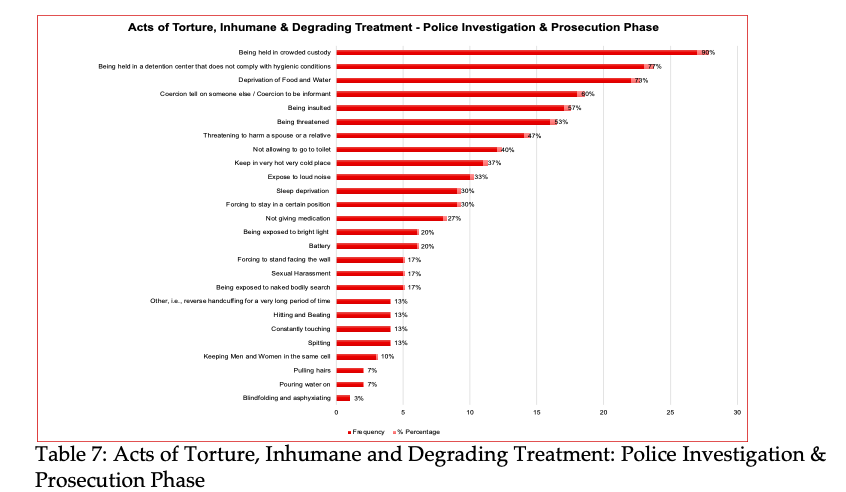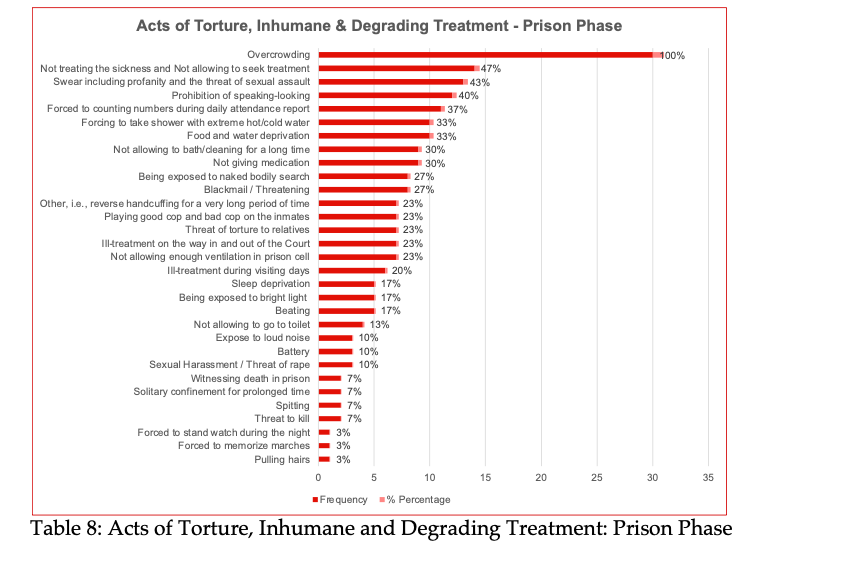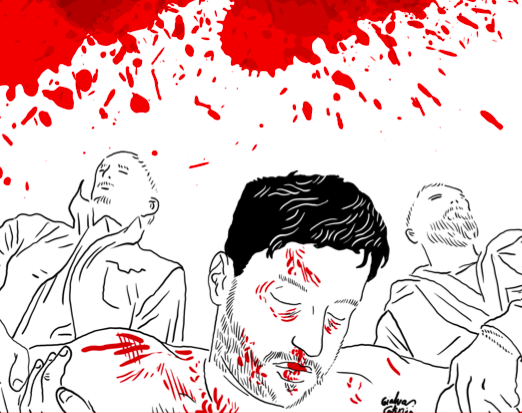Torture and inhuman treatment are continuously increasing in Turkey, and investigations into state officials who commit these crimes are either not conducted or are covered up by the government, according to a report released by London Advocacy and Human Rights Solidarity on Friday.
As part of their victim support project, London Advocacy and Human Rights Solidarity have co-published a new report titled “Politically Motivated Systematic Torture in Turkey and its Survivors: Interviews with UK-based torture survivors.
The report addresses several cases of torture in Turkey and analyses of interviews with UK-based torture survivors who participated in the victim support project.
The Torture Victims project functions as a research project to document and analyze the torture and inhumane or degrading treatment cases evidenced by newly arrived Turkish refugees in the UK after a coup attempt in 2016. Between June 2016 and June 2022, over 5,100 individuals applied for asylum in the UK from Turkey, with an additional approximation of 110,000 individuals applying for asylum in the EU between 2016 and 2021.
According to the report, since 2016 members of the Gülen movement, a group critical of Turkish President Recep Tayyip Erdoğan, and Kurds are at high risk of accusations of terrorism-related charges, and hence torture and inhumane treatment.
The researchers state that information gathered through a questionnaire completed by 30 victims of torture and additional interviews with 10 of the 30 original participants is in line with the findings of International and local institutions that have conducted similar surveys in recent years in Turkey.
Due to government pressure, the fear of being tortured again and humiliation in society, torture victims are hesitant to share their experiences, which is the most common problem faced by human rights defenders working on torture in Turkey. That is why very few cases of torture come to light. Undoubtedly, torturers benefit the most from this.
“In a similar way, torture victims rarely come out of the conditions of incarceration under which they were subjected to inhumane and degrading treatments and speak out about what they’ve undergone. Of all survivors, only a minority speak out and publicize their experiences; further, the majority of those who undergo such treatments often protect the names and titles of the perpetrators of these crimes. Through the participation of our 30 victims, our current study presents the tip of the iceberg, indicating that there are many more stories to tell, and much more work to do,” the report says.

A majority of the interviewees experienced various forms of ill, inhumane or degrading treatment, including being held in overcrowded custody, unhygienic conditions, deprivation of food, water and sleep, arbitrary handcuffing for long periods of time, coercion to give names and become informants, insults and threats. A smaller sample of the interviewees, however, reported additional credible allegations of blindfolding, beating and sexual assault.
However, all interviewees detailed overcrowding, lack of beds in police detention cells and prisons, ineffective legal aid and insufficient access to food and water. The majority of interviewees reported being detained and tortured by police multiple times.

The first-hand accounts of these experiences of incarceration in Turkey are valuable in providing information on the culture of torture that has become normality in Turkish prisons. The existence of the “dark room” — the interrogation room designed for torture — and the “mülakat,” or interrogation unaccompanied by lawyers, threats of sexual assault with batons and more are all extremely eye-opening and horrific. These events further demonstrate the culture of impunity and the complicity of prosecutors in torture and ill-treatment inflicted by law enforcement personnel.
Findings in the report confirm the findings in a report by the Office of the United Nations High Commissioner for Human Rights dated November 12, 2019 that “Several stakeholders observed an escalation of torture and violence towards detainees while, at the same time, security personnel who may have committed crimes on behalf of the government, enjoyed immunity from prosecution during and after the attempted coup.”
Nordic Monitor previously reported that a government decree published on December 24, 2017 stated that regardless of the person’s official title, individuals who acted “within the context of quashing the July 15 coup attempt, terrorist acts or acts transpiring as a follow-up to any of these do not bear any legal, administrative or penal responsibility.” In other words, those who committed crimes were granted immunity from prosecution.
In the interviews, which constitute the most dramatic chapter of the report, victims of torture describe their experiences, especially when they were alone with police officers in the detention centers. In one interview a female teacher (Interviewee 6 ) explains that she had trouble breathing when a bag was put over her head and that they tried unsuccessfully to force her to become an informant. She states that she was not with her lawyer during any of the interrogations. She adds that the lawyer appointed to her by the Ankara Bar Association was not interested in her and her experiences due to fear of the government. She states that she could not be alone with the doctor in the hospital she was taken to for a compulsory health examination and that a police officer stood by her and prevented her from recording the torture in her health records.
Interviewee 6 also mentioned how she witnessed police officers talk among themselves about how to hit detainees without causing bruising; “You’re going to hit where it won’t bruise. Don’t punch where everyone can see it!”
Source : NordicMonitor

